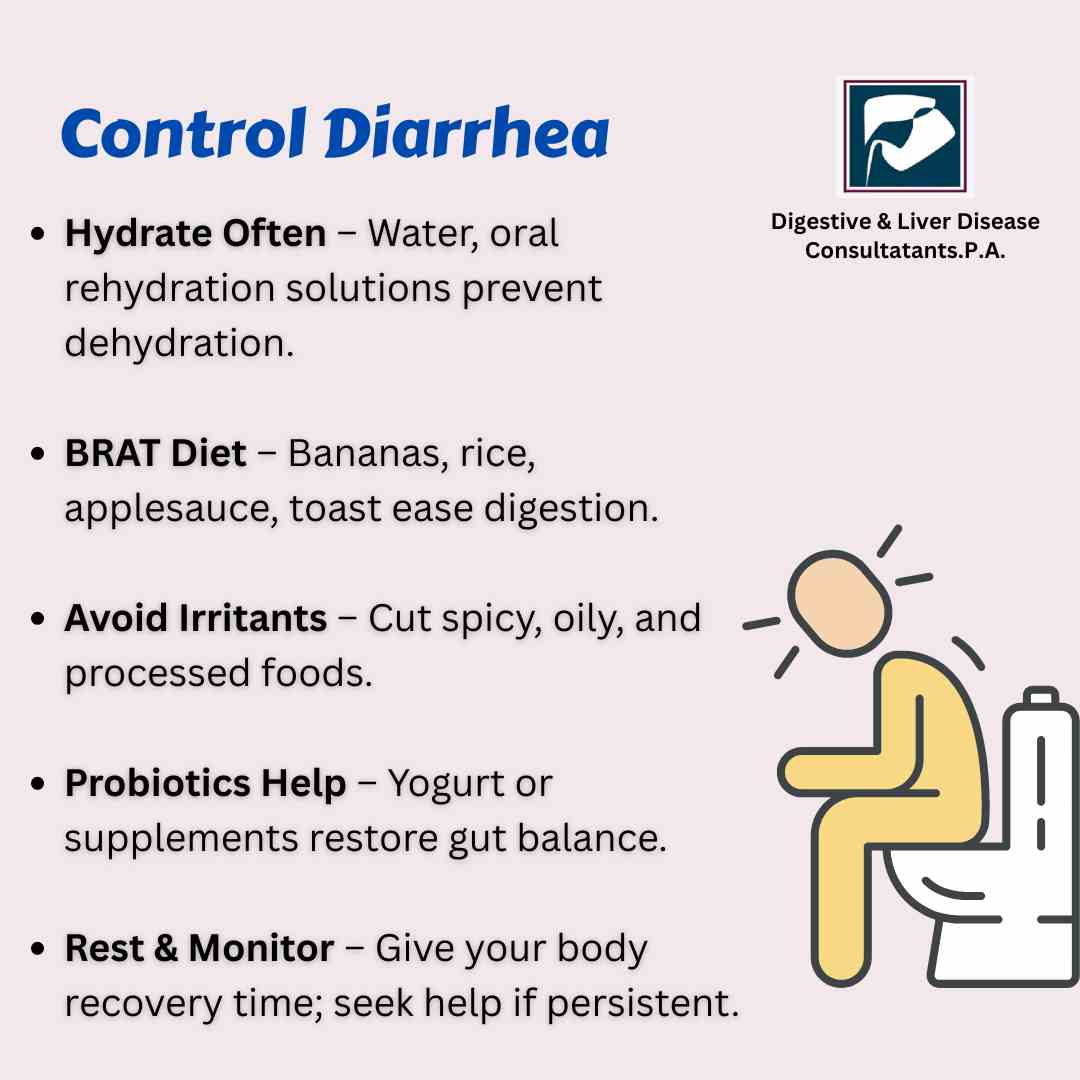Diarrhea is a common digestive problem that can strike anyone at any age. It’s often temporary and may be caused by viral infections, food intolerance, stress, or mild digestive upset. While it usually resolves within a few days, frequent or severe diarrhea can lead to dehydration, nutrient loss, and discomfort.
Before trying any remedies, it is important to understand the causes of diarrhea and when medical attention is necessary. Using safe home remedies can help ease symptoms, rehydrate your body, and restore digestive balance.
Understanding Diarrhea
Diarrhea is defined as passing loose or watery stools more than three times a day. It may be accompanied by abdominal cramps, bloating, nausea, or urgency.
Some common causes include:
- Viral infections such as gastroenteritis
- Food intolerances (like lactose or gluten sensitivity)
- Certain medications (antibiotics or laxatives)
- Digestive disorders such as irritable bowel syndrome (IBS) or inflammatory bowel disease (IBD)
- Stress or anxiety
While mild cases usually improve on their own, persistent diarrhea lasting more than two days in adults—or accompanied by fever, blood in stools, or severe dehydration—requires professional evaluation.

Home Remedies to Control Diarrhea
1. Stay Hydrated
Diarrhea can quickly lead to dehydration, so the first step is to replace lost fluids and electrolytes. Drinking plenty of water is essential. You can also use:
- Oral rehydration solutions (ORS)
- Coconut water, which naturally contains electrolytes
- Clear broths or soups to maintain hydration and energy
Avoid caffeinated, alcoholic, or sugary drinks as they can worsen diarrhea.
2. Follow a Bland Diet
Eating mild, easy-to-digest foods can reduce irritation and allow your gut to recover. Common options include:
- Bananas: Rich in potassium and help replace lost electrolytes
- Rice: Easy on the stomach and provides energy
- Applesauce: Contains pectin, which can help bulk up stools
- Toast: Simple carbohydrates that are gentle on digestion
This is often referred to as the BRAT diet (Bananas, Rice, Applesauce, Toast), which has long been recommended for mild diarrhea.
3. Probiotics
Probiotics are beneficial bacteria that help restore balance in your gut microbiome. You can get probiotics naturally from:
- Yogurt with live cultures
- Kefir
- Fermented vegetables like sauerkraut or kimchi
Probiotics may help shorten the duration of diarrhea and improve overall gut health, especially after antibiotic use.
4. Ginger
Ginger has been used for centuries as a digestive aid. It can help reduce nausea, calm stomach cramps, and improve digestion. Try:
- Fresh ginger tea
- Ginger-infused water
- Small amounts of grated ginger added to food
5. Chamomile Tea
Chamomile is known for its anti-inflammatory and soothing properties. Drinking chamomile tea can help relax the digestive tract and reduce cramping associated with diarrhea.
6. Avoid Certain Foods
While your gut is recovering, avoid foods that may worsen diarrhea:
- Fried or greasy foods
- Spicy dishes
- Dairy products (if lactose intolerant)
- Artificial sweeteners, especially sorbitol
These foods can irritate the intestines and prolong diarrhea.
7. Stay Rested
Your body heals faster when you rest. Avoid strenuous activities and give your digestive system time to recover. Adequate sleep and reduced stress levels can improve gut function and help prevent future flare-ups.
8. Apple Cider Vinegar (Optional)
Some people find relief using diluted apple cider vinegar, which may help restore gut acidity and balance gut bacteria. Mix 1–2 teaspoons with a glass of water and drink before meals.
Note: This remedy is not suitable for everyone and should be used cautiously if you have acid reflux or ulcers.
When to See a Doctor
Home remedies can help control mild diarrhea, but you should consult a healthcare professional if you experience:
- Diarrhea lasting more than 2–3 days in adults
- Signs of severe dehydration (dry mouth, dark urine, dizziness)
- High fever or chills
- Blood or mucus in stool
- Severe abdominal pain
Persistent diarrhea can be a sign of underlying digestive disorders, infections, or liver conditions that require proper medical evaluation.
About Digestive & Liver Disease Consultants, P.A.
At Digestive & Liver Disease Consultants, P.A., we specialize in diagnosing and treating digestive and liver disorders for patients of all ages. Our team of board-certified gastroenterologists uses advanced diagnostics, including endoscopy, colonoscopy, and lab tests, to determine the root cause of symptoms like diarrhea, bloating, abdominal pain, and unexplained weight loss.
We focus on individualized care, creating treatment plans tailored to each patient’s needs. From mild digestive issues to chronic conditions like irritable bowel syndrome (IBS) or inflammatory bowel disease (IBD), our specialists are committed to helping you achieve lasting gut health.
Conclusion
Diarrhea is usually temporary and can be managed at home with hydration, a bland diet, probiotics, and rest. Simple home remedies like bananas, rice, ginger, and chamomile tea can provide relief and help restore digestive balance.
If you experience ongoing diarrhea or other digestive symptoms, schedule an appointment with Digestive & Liver Disease Consultants, P.A. Our expert gastroenterologists provide professional evaluation, accurate diagnosis, and personalized treatment plans to help you regain comfort and gut health.






